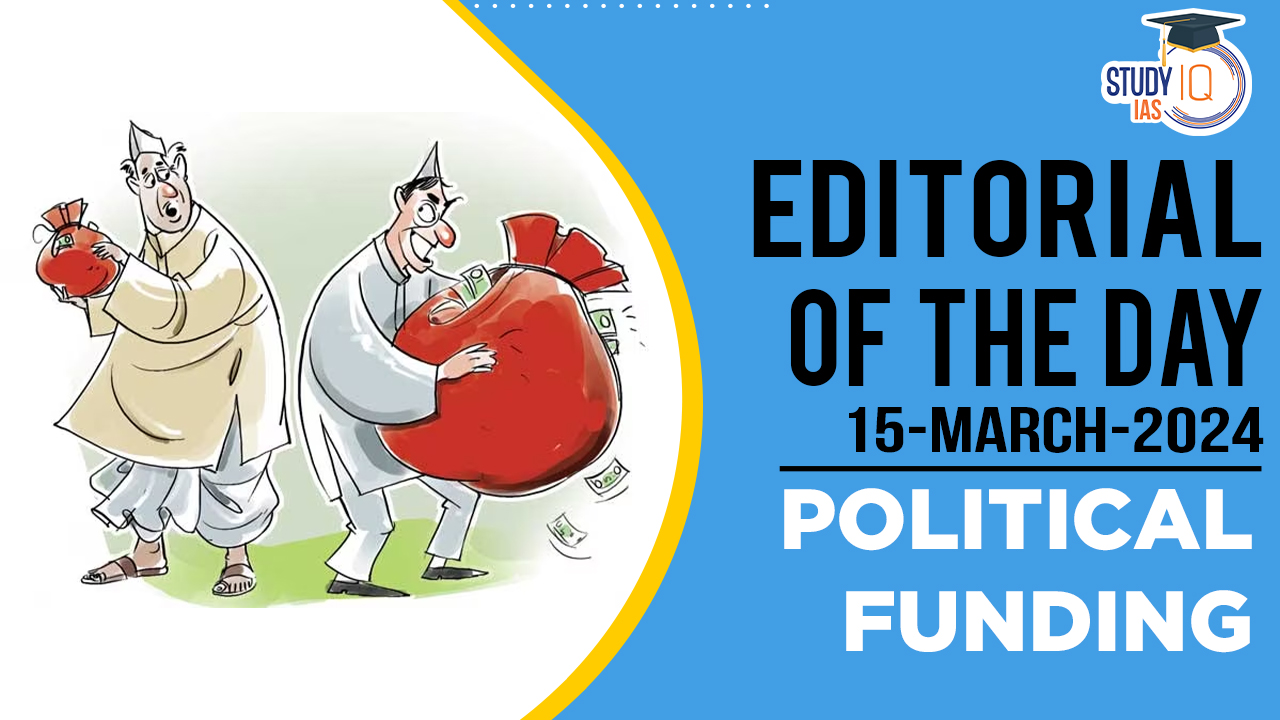Table of Contents
Political Funding Background
- Supreme Court Verdict: Declared the electoral bonds scheme unconstitutional and mandated SBI to provide relevant data to the Election Commission.
- Public Disclosure: The Election Commission is set to make the data public, raising questions about potential improprieties among corporate donors and recipients.
- Donor-Recipient Matching: SBI acknowledged the possibility of matching donors to recipients by June, which could clarify the existence of any quid pro quo.
- Influence on Elections: The issue of political financing is significant due to its impact on the integrity of democracy.
Past Political Funding and Transparency
- Historical Opaqueness: Before 2018, 70% of political donations were made in cash, and only donations above Rs 20,000 were reported to the EC.
- Income Tax Rebates: Such reported donations qualified for income tax rebates upon EC verification.
- Post-Electoral Bonds Secrecy: The introduction of electoral bonds brought complete secrecy over political donors and recipients.
We’re now on WhatsApp. Click to Join
Alternatives to Electoral Bonds
- Indrajit Gupta Committee Proposal: Recommended partial public funding of political parties contingent on internal democracy.
- State Funding of Elections: Mentioned as a potential solution, but it has drawbacks like the rise of non-serious candidates.
- Funding Based on Electoral Performance: Proposes state funding of political parties based on votes received at Rs 100 per vote.
Enhancing Transparency and Integrity
- Auditing Party Accounts: Political party accounts should be audited by independent auditors from a panel provided by the EC or CAG.
- National Election Fund: Suggested as a repository for corporate and private donations with income tax benefits.
- Protection from Reprisal: The fund would prevent corporate donors from facing harassment by ruling parties.
Global Practices and Feasibility
- International Models: According to a study, 71 nations provide state funds to political parties based on vote counts.
- Prevalence: This funding model is widespread in European, African, American, and Asian countries.
- Applicability to India: The success of this model in various countries suggests its potential effectiveness in India.
Moving Forward
- Public Cost Justification: Argues that the expense to the public is justified by the benefits of honest and transparent governance.
- Possible Cess Solution: Suggests implementing a small cess, like one paisa per litre of petrol, to fund political parties.
- Electoral Trusts: Existing trusts lack transparency, with the Reuters report revealing serious issues.
- Need for Debate: Calls for a discussion on the future of political financing and the operational details of the proposed solutions.


 Pariksha pe Charcha 2025, Overview, Even...
Pariksha pe Charcha 2025, Overview, Even...
 National Policy on Framework on Agricult...
National Policy on Framework on Agricult...
 How Scientists used Scotch tape to Creat...
How Scientists used Scotch tape to Creat...




















